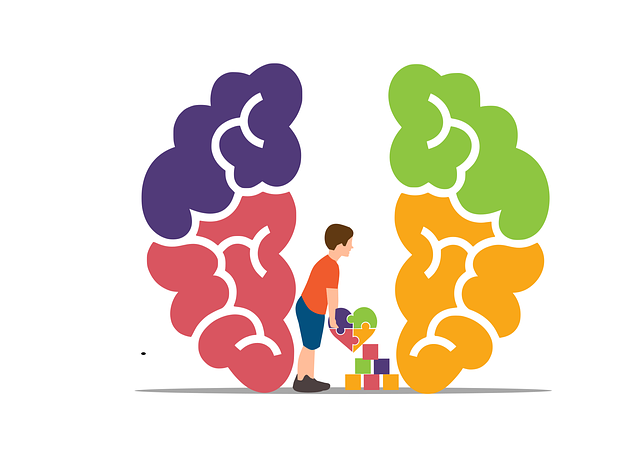Creating a mental wellness podcast for young children requires engaging content tailored to their developmental stages, using simple language and relatable stories. Focus on topics like building self-esteem, resilience, and navigating social dynamics. For alcohol abuse, target diverse audiences with practical strategies such as art therapy, storytelling, and mental wellness coaching programs. Each episode should include expert interviews, real-life narratives, and practical tips. Employ engagement techniques like journaling exercises, conflict resolution examples, and guidance from professionals, while adhering to ethical guidelines for sensitive topics. Distribute through digital platforms and engage with communities focused on mental health to increase accessibility and impact.
“Unleash the power of audio with a mental wellness podcast series tailored for young children, addressing the unique challenges they face. This comprehensive guide dives into creating engaging content that tackles sensitive issues like alcohol abuse from a child’s perspective. Learn effective production techniques to craft a therapeutic experience, and master distribution strategies to reach your audience. By understanding young minds, you can create a podcast that offers vital therapy and support.”
- Understanding the Target Audience: Young Children and Their Unique Needs
- Creating Content: Topics and Strategies for Addressing Alcohol Abuse
- Production Techniques: Ensuring an Engaging and Therapeutic Podcast Series
- Distribution and Marketing: Reaching Your Audience and Measuring Impact
Understanding the Target Audience: Young Children and Their Unique Needs

Understanding the target audience is a crucial step in producing an effective mental wellness podcast series for young children. This age group has distinct needs and challenges that differ from adults, especially when it comes to addressing sensitive topics like therapy for young children affected by alcohol abuse. Young listeners may not always grasp complex concepts directly, so creating content that is both engaging and easily digestible is essential. Using simple language, relatable stories, and interactive elements can make a significant impact on their mental wellness.
Furthermore, considering the unique developmental stages of childhood—from early years to pre-adolescence—can help tailor the podcast’s approach. Topics like building self-esteem, fostering resilience, and navigating social dynamics become increasingly important as children grow. Public awareness campaigns and educational initiatives aimed at this demographic can play a vital role in promoting mental health awareness, encouraging open conversations about emotional well-being, and providing valuable tools for self-expression and coping strategies.
Creating Content: Topics and Strategies for Addressing Alcohol Abuse

In crafting content for a mental wellness podcast series focused on addressing alcohol abuse, it’s crucial to explore topics that cater to diverse audiences and offer practical strategies. Targeting both adults and young children, episodes could delve into the causes and consequences of alcohol abuse, with specific guidance tailored to each demographic. For young children, discuss the importance of early intervention and therapy, highlighting methods like art therapy or storytelling as effective means of mental wellness journaling exercises. These approaches can help them express emotions and understand their feelings in a safe, supportive environment.
Additionally, provide insights into the development of mental wellness coaching programs focused on preventing and managing alcohol abuse. Emphasize the role of education, peer support, and community resources in fostering Mental Health Awareness. Strategize how to break down stigma associated with addiction through open dialogue and personal stories. Each episode should offer a mix of expert interviews, real-life narratives, and practical tips for listeners seeking to improve their mental wellness or support loved ones struggling with alcohol abuse.
Production Techniques: Ensuring an Engaging and Therapeutic Podcast Series

To produce an engaging and therapeutic podcast series on mental wellness, especially focusing on topics like therapy for young children and alcohol abuse, producers should employ a range of effective techniques. Firstly, mental wellness journaling exercises can be woven into each episode, encouraging listeners to reflect on their own experiences and insights. This not only enhances engagement but also fosters personal growth. Additionally, providing conflict resolution techniques through real-life case studies or expert interviews can offer valuable guidance for both listeners and mental health professionals.
Risk management planning is another crucial aspect. Discussing sensitive issues like alcohol abuse should be handled with care, ensuring informed consent from guests and adhering to ethical guidelines. Incorporating practical mental wellness exercise guidance from qualified professionals can add depth and value to the series. By balancing these elements, the podcast can create a safe and supportive space for listeners navigating various mental health challenges.
Distribution and Marketing: Reaching Your Audience and Measuring Impact

Distribution and marketing play a pivotal role in ensuring your mental wellness podcast series reaches the intended audience and makes a tangible impact. Utilizing various digital platforms is essential; consider hosting your episodes on popular streaming services to cater to a wide range of listeners. Engaging with communities focused on mental health, especially those advocating for therapy for young children or addressing alcohol abuse, can significantly boost exposure.
Leverage social media and targeted online advertising to promote your series, highlighting the value it brings to both individuals seeking support and professionals in the field. By effectively communicating the benefits of your podcast, such as its role in Mental Health Policy Analysis and Advocacy or its contribution to Mental Illness Stigma Reduction Efforts, you can attract a dedicated listener base. Additionally, incorporating Compassion Cultivation Practices within your marketing strategy may resonate with audiences interested in self-care and community well-being.
Producing a mental wellness podcast series focused on therapy for young children affected by alcohol abuse requires a deep understanding of its unique target audience. By addressing their specific needs and employing engaging production techniques, creators can develop content that not only informs but also therapeutically supports young minds. Effective distribution and marketing strategies ensure the series reaches those who need it most, positively impacting lives and fostering a healthier future for children navigating this challenge.














